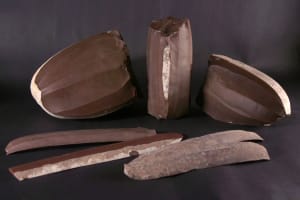Israeli researcher claims finding 'this is from Moses' written in ancient Egyptian mine

Michael Bar-Ron, a graduate student at Ariel University in Israel, has submitted a paper for peer review arguing that Proto-Sinaitic writing in an ancient Egyptian turquoise mine reads the words, “this is from Moses.”
A former rabbi, Bar-Ron argues the inscription is evidence of the veracity of the biblical narrative about Moses and the Israelites’ exodus from Egypt.
This interpretation, he posits, is backed up by other inscriptions, which he suggests may reflect Israelite theology.
“We find worshipful inscriptions lauding the idol Ba’alat, with clearly an El or God-serving scribe coming in later and canceling out certain letters, in an effort to turn the message into a God-serving one,” Bar-Ron said in an interview with Tim Mahoney of the Patterns of Evidence film series.
According to his bio, Bar-Ron’s “new critical translations of nearly the entire Proto-Sinaitic corpus suggest that these inscriptions may preserve historical traces of the biblical traditions of the Hebrews’ Sojourn, Slavery, and Exodus from Egypt.”
Bar-Ron maintains that his claim of finding the name “Moses” among the Proto-Sinaitic inscriptions is not intended to be sensationalist.
“I took a very critical view towards finding the name ‘Moses’ or anything that could sound sensationalist,” he said. “In fact, the only way to do serious work is to try not to find elements that seem ‘Biblical,’ but to struggle to find alternative solutions that are at least as likely.”
Bar-Ron also admitted it is possible that his work will not hold up to peer review.
“Even if my finds don’t exactly stand the test of time and peer review, that wouldn’t cause me to cease believing in God or worshipping him according to my own traditions,” he said.
Widely respected Egyptologist Dr. Thomas Schneider has already weighed in on Bar-Ron’s claims, saying they are “completely unproven and misleading.”
Proto-Sinaitic, tracing back to the Middle Bronze Age, is notoriously difficult to translate, due to the scarcity of known texts in the language.
“Every proposed translation relies on a corpus of fewer than forty texts, many badly weathered,” the Jerusalem Post noted.

The All Israel News Staff is a team of journalists in Israel.
You might also like to read this:
















